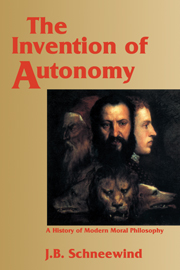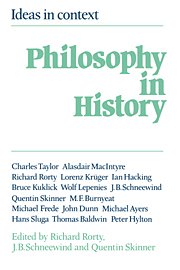Thomasius's rejection of servility in our relation to God is a late articulation in Germany of an attitude that found full voice earlier in England. “A right knowledge of God,” John Smith wrote in the middle of the seventeenth century, “would beget a freedome and liberty of soul within us, and not servility” (Discourses, p. 28; see also pp. 362, 364, 424). “Reverence God in thyself,” Benjamin Whichcote exhorted his readers, “for God is more in the mind of man, than in any part of this world besides” (Patrides, p. 333, no. 798). Ralph Cud worth quoted Athanasius in order to assert that “God was therefore incarnated and made man, that he might deify us” (Patrides, p. 101). From the 1640s on, these three formed part of a group engaged in a radical rethinking of Protestantism. They all agreed with Smith that “right knowledge of God” is indispensable to morality as well as religion. But the increase of knowledge was not, for them, sufficient for morality. What is centrally required is exercise of the virtues of love; and we are called to perfect ourselves in that exercise.
Like many others who contributed to the development of thought about morality, these thinkers were responding to religious controversies that were tearing their society apart. Sectarian Calvinism was swamping out the Thomism that Hooker had thought foundational for a national church.

